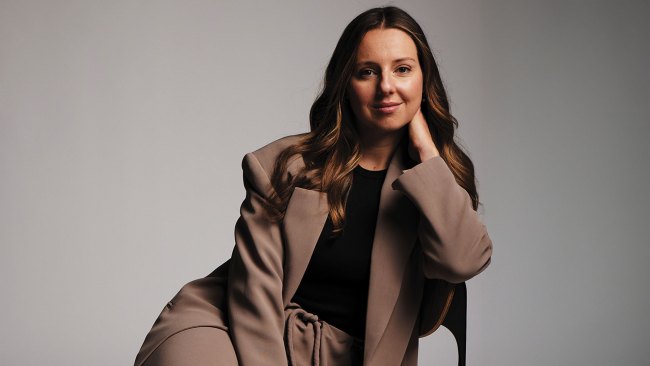How Christmas Day comments about overeating are encouraging toxic diet culture among kids
Eating disorder survivor and sister of SA star, Mark Soderstrom, shares her story of battling an eating disorder – and how Christmas eating remarks can trigger lifelong issues.

Lifestyle
Don't miss out on the headlines from Lifestyle. Followed categories will be added to My News.
“The diet starts tomorrow” is the throwaway phrase your well-meaning boomer Aunt Susan will blurt out over a plate of Christmas ham.
But while it may seem like a harmless sentiment to some, it’s a sign of toxic diet culture creeping its insidious way in to festive season, experts say.
Eating disorder survivor Rachel Soderstrom knows all too well how diet culture can harm young minds, having pored over glossy magazines in the peak of the supermodel craze of the 90s.
The 47-year-old became consumed by the idea of the “perfect” body.
“I wish I knew I was good enough,” she told The Advertiser. “I wish I knew there was no perfect body.
“I now know we can’t look the same and we shouldn’t look the same.”
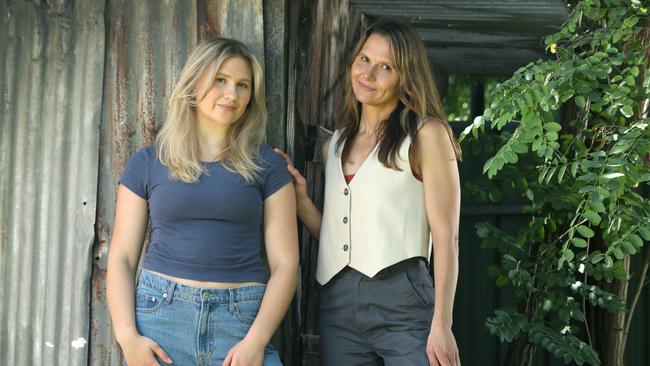
Having suffered with disordered eating, bulimia and restrictive dieting across her formative years from 15 to 23 years of age, the mum-of-two now dedicates her time to educating others through her work with the Butterfly Foundation, the national charity for those impacted by eating disorders.
Central to her focus is helping shift the language surrounding diet culture to encourage healthy eating habits and positive body image.
She said comments about food and dieting often ramp up at Christmas, but those throwaway remarks can “make us feel shame and guilt around food and the choices we’ve made”.
“We can internalise this and feel bad or like we’re bad for eating these foods,” Ms Soderstrom explained.
“This doesn’t support us having a positive relationship with food, and can lead to dieting and restricting and bingeing, and ultimately disordered behaviours, creating a disordered relationship with food.”
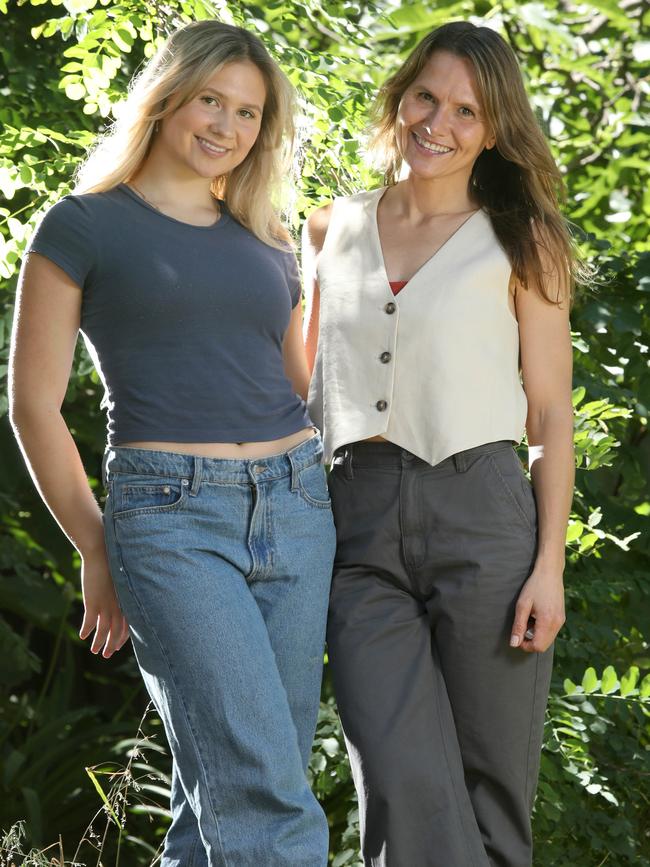
Touching on her own disordered eating past, she said it was often comments people made about themselves to which she would cling, stressing the importance of always speaking positively about yourself around children.
“I was always very conscious what people said not only about my body, but their own bodies and other people’s bodies. So it’s not just how you talk about food, it’s the comments you make about yourself.”
Ms Soderstrom, who is the younger sister of Adelaide radio and TV personality Mark Soderstrom, has become “extremely conscious” of how she talks about food and body image in front of her kids, 19-year-old Jade and Zac, 23.
She said she focuses on letting her kids know that it’s “OK to celebrate with food on Christmas Day”.
“It’s OK to eat that little bit more than you might on other days, and not feel guilty about it, and not assign food moral value, ‘this is good, this is bad’.
“Also helping them avoid external cues, like ‘how much is everyone else eating’, or having food pushed upon them,” she said.
‘Are you sure?’: A flippant comment can cause irreversible harm
From ever-present gym membership promotions, to “summer body” pressures as the December heat beats down on Australia, the pervasive nature of diet culture during the holidays – a time when we should be enjoying ourselves with gleeful abandon – is rife.
Not only is it a breeding ground for our own personal guilt, it is encouraging poor body image and toxic diet culture in our kids, who soak up comments from well-meaning relatives like a sponge.
Adelaide psychologist and member of the Australian Association of Psychologists Jamie Witt said Christmas is a particularly harmful time for disordered eating habits to develop.
His concerns are mirrored by the Butterfly Foundation’s research, which found the number of people reaching out to their helpline over the holiday period has increased by 32% since 2019.
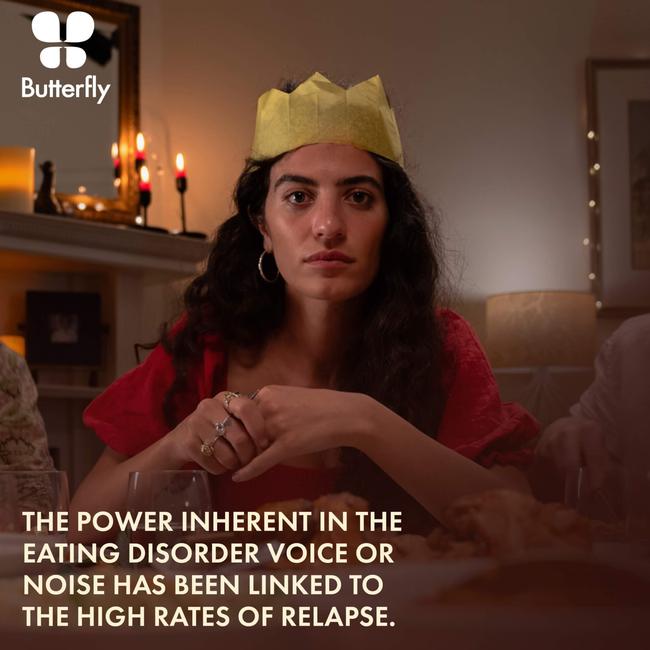
“Disordered eating habits can form over the holiday break as regular routines are broken up, and there are more social and family events that occur where there are often larger amount so food and drinks consumed,” Dr Witt said.
Comments like “Are you sure you want another plate?” and “Aren’t you watching your weight?” — anything regarding weight — can trigger unhealthy relationships with food, he explained.
“These mindsets can become core belief systems, which become automatic thoughts.
“If those develop in someone who is not aware of how the brain picks up thought habits, then the person can actually believe something is wrong rather than seeing temporary weight gain as a fluctuating concept.
“Things said and learnt can be reinforced and become part of the person inner dialogue and develop into their psychological makeup.”
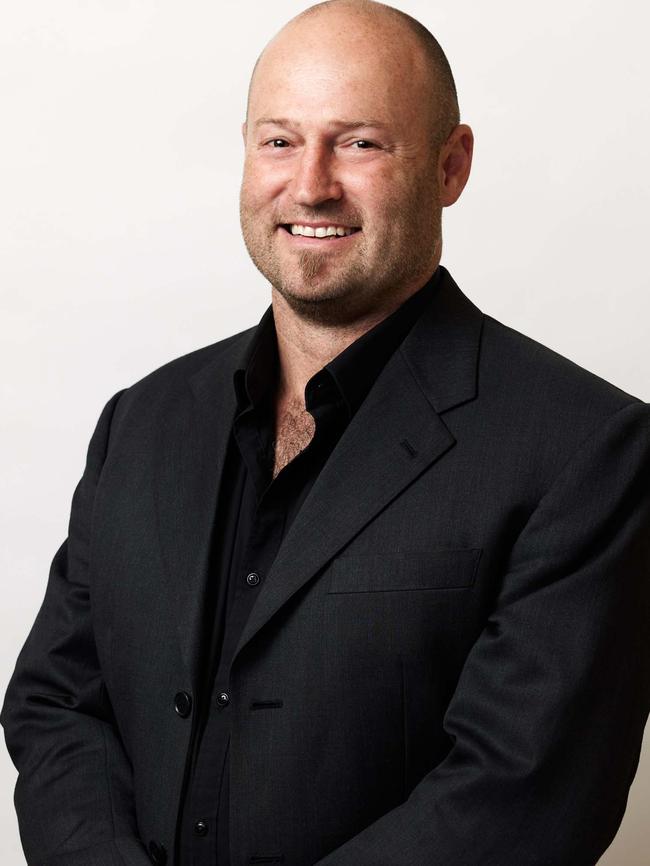
He explained the best way to combat these risks was to focus on reminding children it is “OK to take a few days off during the holiday period”.
He advised explaining to children that “it’s good you want to have good eating habits, and it’s normal to feel some guilt during this time of year, but it’s important to not beat yourself up,” while reminding them you are here to help.
Meet the Adelaide mum rewriting the book
Georgie Thomas, who has had her own struggles with disordered eating, is reframing how we talk about our bodies via her business Body Image Rewritten.
Her workshops aim to help generations of women who grew up in the peak of toxic diet culture of the late 90s and early 2000s.
The mum-of-one says it is “unfortunately inevitable” that children are going to be “surrounded” by toxic diet culture — which thrives at this time of year — but “open communication” is the best way forward.
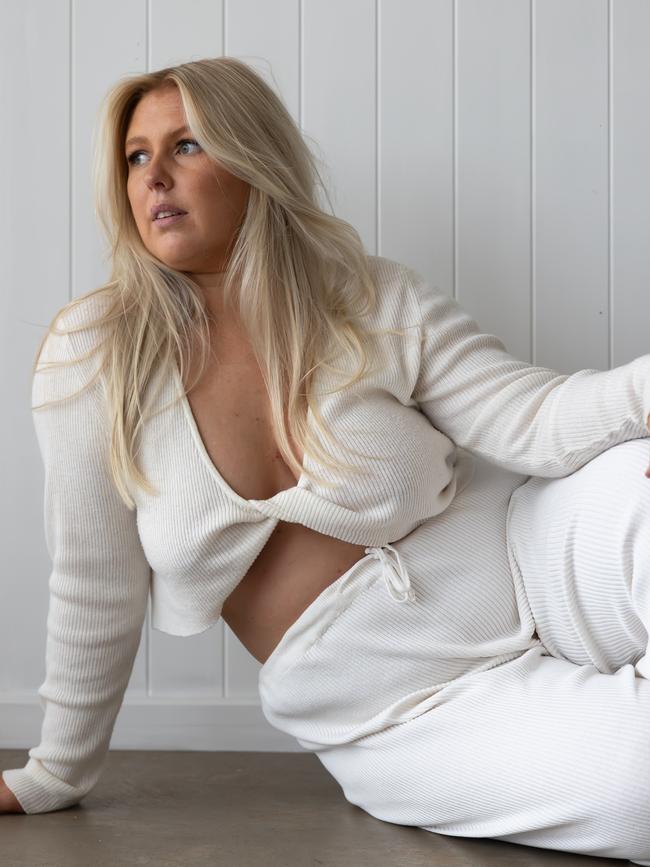
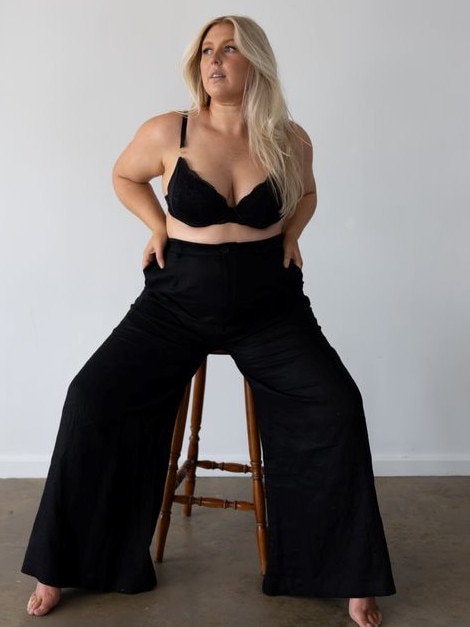
“Talk about how dieting is not the answer, how the right people in their life will love them for exactly who they are and encourage the fact they don’t need to change themselves or their bodies for anyone,” she said.
“It’s also great if parents can share their own experiences with diet culture and how it has affected them in their life … The ultimate best thing parents can do is work on mending their own relationship with their body or food if they have struggles.”
The mum of baby Harry said it is imperative for parents to be mindful of their language as “kids pick up on everything and replicate the same beliefs”.
For those family members who haven’t cottoned on to the weight of their words, Ms Thomas suggests calling them out as gently as possible.
“Pull them aside and explain how their comments may be damaging for other people who are trying to mend their relationship with their body or food.”
“Sometimes when you’re in the thick of diet culture world, it’s hard to see how your comments effect other people and how they might feel about themselves,” she said.
“Most of all, show compassion for this person as they are obviously struggling themselves.”
If you’re impacted by an eating disorder or body image concern, or know someone who is, contact Butterfly’s National Helpline on 1800 ED HOPE (1800 33 4673) via webchat or email support@butterfly.org.au Counsellors are available 7 days a week, 8am-midnight (AEDT)




